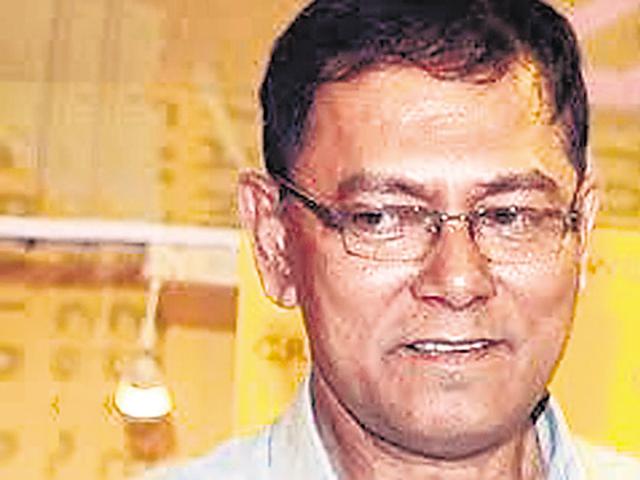‘Rajan learnt about books from J Dey’s leaked emails to publisher’
The CBI charge sheet includes transcripts of the emails in addition to excerpts and “rough structures” from both books that Dey emailed to his publisher.
The CBI, which said in its charge sheet that journalist J Dey was murdered by Chhota Rajan’s henchmen as he was planning two write two books on the underworld, got details about the proposed books from email exchanges between Dey, a junior colleague and their publisher between January and June 2011.

The CBI charge sheet includes transcripts of the emails in addition to excerpts and “rough structures” from both books that Dey emailed to his publisher.
One of these books had the working title ‘Chindi: Rags to Riches’. It was to be, in Dey’s words, a “detailed narrative of 20 dreaded criminals who began as robbers, thieves and petty criminals… but graduated into becoming key players in Mumbai’s underworld.” Some of those whose stories would be in book included Rajan, his henchman DK Rao, who began as a robber, and Nitish Kasare, “who dressed as a woman during the day and looted and killed after sunset”.
The other book was untitled and was to be written by Dey but published under the name of a junior colleague. It would “trace the meteoric rise of don Dawood Ibrahim”. It would also include an “assassination plot by Chhota Rajan and his gang, particularly his right-hand man Farid Tanasha, who was murdered in 2010”.
In its charge sheet, the CBI claimed that Dey wanted to keep the contents of the books a secret, and was thus trying to get the first book, Chindi, published by a Bengaluru-based firm instead of Mumbai-based Jaico Books, which had published his two previous books.
The book’s concept note however, was leaked in March 2011, a few months before Dey was murdered. The charge sheet claims that excerpts of the book were leaked by co-accused Vinod Asrani and some journalists. Once he got wind of it, Rajan began to persuade Dey not to write the books.
In one email, Dey told his publisher that according to him, Dawood was a “master planner who had constantly overcome death threats and conspiracies against him, and possessed a foresight that ensured him an upper hand”. He had said that Dawood was “almost like a corporate businessman controlling an empire of thousands of crores”.
Rajan, according to the CBI, was furious that Dey would be portraying him in poor light in the book Chindi and in his news reports, which suggested that Rajan had money and health problems and was desperate to regain power. He was also angry that Dey’s book on Dawood contained praise for the gangster.
The charge sheet also contains a forensic report, which confirms that Rajan had spoken to a witness after Dey’s murder, in a conversation intercepted by the police. The transcript of this conversation reveals that Rajan referred to Dey as a “traitor” who had migrated to the “rival camp”. The CBI’s charge sheet also named Raviram Rattasar as an accused. Rattasar, whose whereabouts are unknown, had earlier been named as a witness by the Mumbai crime branch.
Stay updated with all the Breaking News and Latest News from Mumbai. Click here for comprehensive coverage of top Cities including Bengaluru, Delhi, Hyderabad, and more across India along with Stay informed on the latest happenings in World News.
Stay updated with all the Breaking News and Latest News from Mumbai. Click here for comprehensive coverage of top Cities including Bengaluru, Delhi, Hyderabad, and more across India along with Stay informed on the latest happenings in World News.





